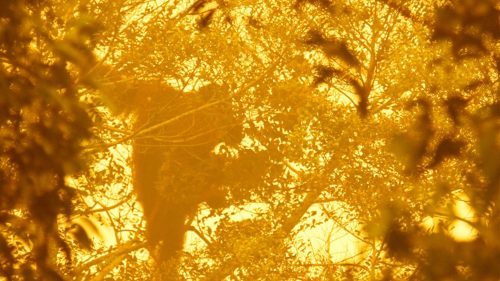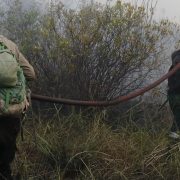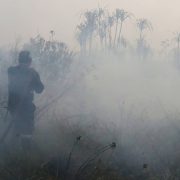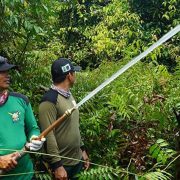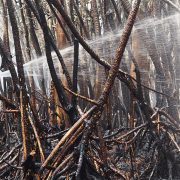2019 has seen the engulfing of the world’s forests as a warming planet continues to choke under smoke and flames. Despite the trials, heroes continue the fight.
Across the world’s media this year we have been inundated with photos and videos of rainforests in flames. As intense fires in the amazon drew global attention, forests elsewhere have seen their share of struggle. Particularly, the Borneo region of Indonesia in South East Asia has witnessed its green forests become transformed into charred landscapes.
For many forest regions around the world, fire is a regular component of the ecosystem. In the dry forest ecosystems of Australia, plants such as Eucalypts have evolved adaptations to fire over millions of years, such that forest blazes form a key part of their ecology. Rainforests however, have not had millions of years to adapt.
Normally the damp nature of these ecosystems protects them from large-scale fire; thick peat soil with a high water table is clogged with moisture and does not easily burn. Yet, ill-planned or careless human intervention in these ecosystems has deprived them of their protection. In Borneo, agricultural projects of the 80’s and 90’s saw the draining of millions of hectares of peatland using canals to form plantations and extract timber. The consequences have been disastrous. With the drying of the land, the rainforest of Central Kalimantan in the heart of Borneo has seen annual fires for 20 years.
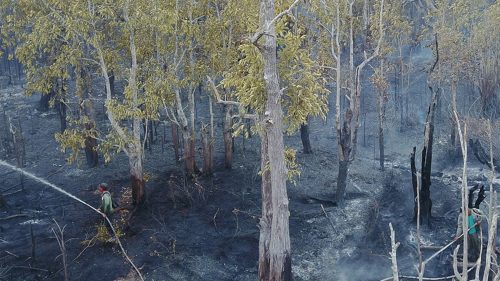
The Indonesian forests are home to a bounty of wildlife and biodiversity. Orangutans, songbirds, and millions of amphibian, reptile and invertebrate species are dependent on these ecosystems for their existence. Should the fires continue to spread in the years to come, there is a real risk of losing this natural treasure permanently.
The threat to humans is equally severe, with homes lost, and the significant reduction in air quality in the regions affected having massive impacts on respiratory health. As well as impacts on health, these huge fires have a significant impact on the economy, and also children’s wellbeing and education as schools can be closed for months due to outbreaks.
Of course, while humans have caused this, there are truly dedicated people risking their lives to fight the flames and mitigate the crisis.
The Borneo Nature Foundation supports multiple Community Firefighting Teams that work around the clock to protect both people and the forest. These teams are formed almost entirely of individuals from communities living in the affected region, supported by local police and soldiers.
Each day, teams travel by boat along the region’s river system, using drones and thermal technology to identify fire spots and determine the best strategy to battle the flames. The frontline team then embark, working continuously until the dried peatland ceases to burn.
These firefighters need help to continue their good work. Fuel for their boats, food, and daily income for their families are all in short supply.
Photo credit: Borneo Nature Foundation
Chester Zoo’s support for the Borneo Nature Foundation community firefighting programme has come through the Monsoon Forest Fund, generated by your incredible generosity following our own experience of the devastation that fire can cause.
This financial aid is now making a difference to these many human lives, and the wildlife with which they share the rainforest.
To learn more about the efforts of the Borneo Nature Foundation and Indonesia communities to fight the forest fire crisis, you can check out their website and Instagram.
Because ACT FOR WILDLIFE is supported by Chester Zoo, 100% OF YOUR DONATIONS go straight to OUR CONSERVATION WORK! That’s pretty special. We couldn’t PREVENT EXTINCTION without YOU!
